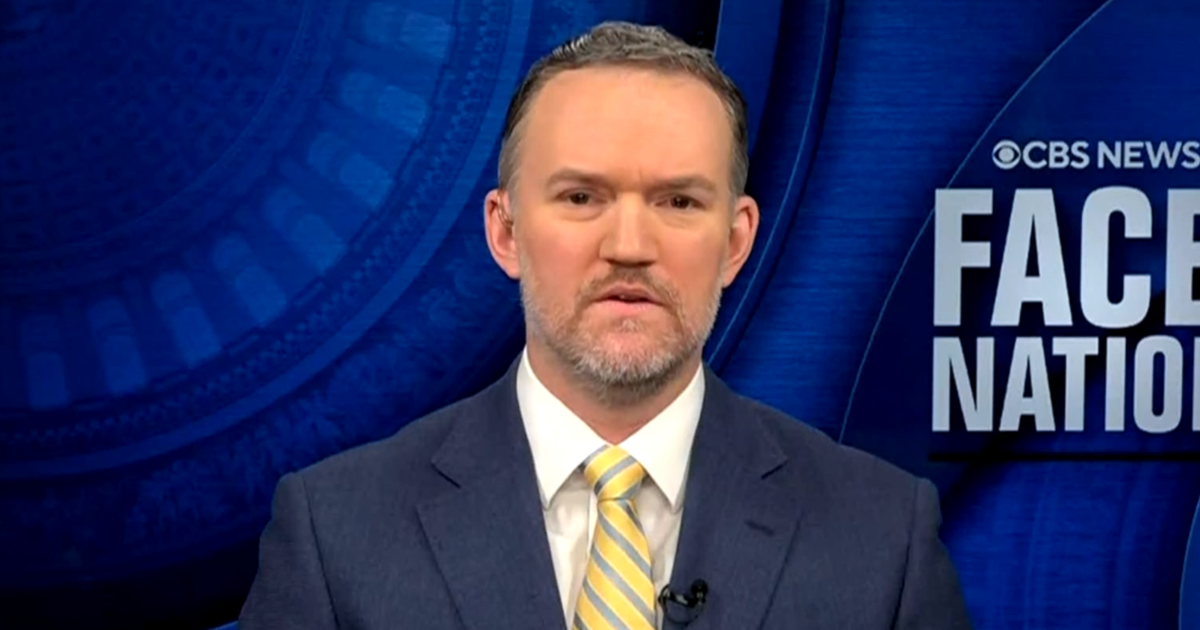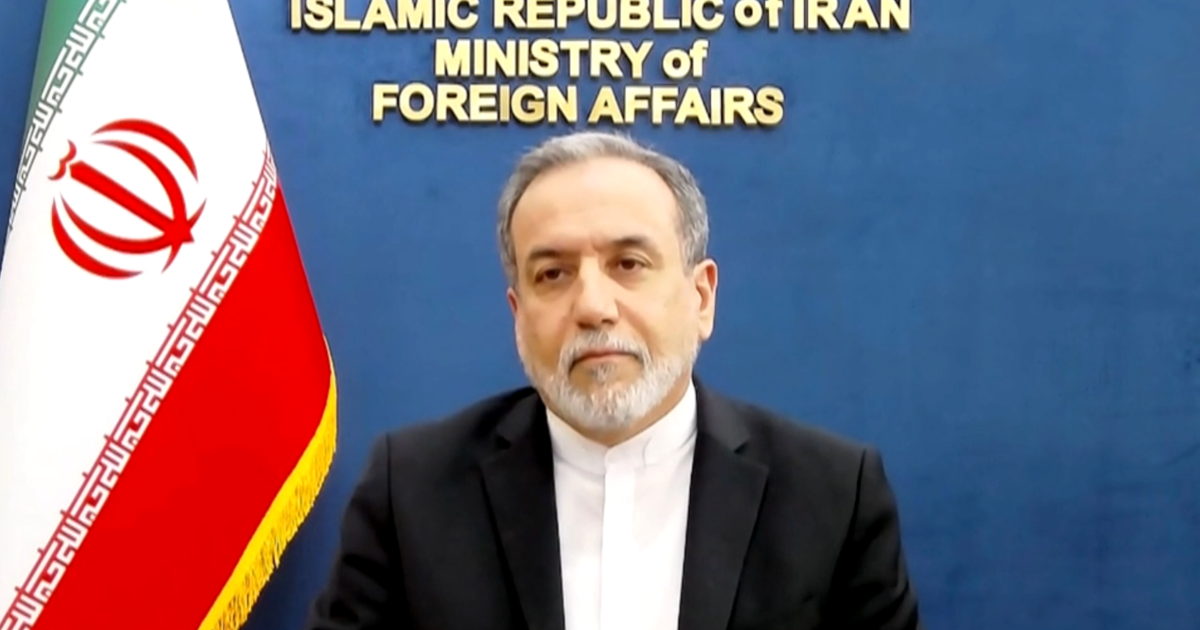Transcript: World Bank President David Malpass on "Face the Nation," February 27, 2022
The following is a transcript of an interview with World Bank President David Malpass that aired Sunday, February 27, 2022, on "Face the Nation."
MARGARET BRENNAN: For more on the potential global financial impact of the war in Ukraine, we turn to the President of the World Bank, David Malpass. Good morning to you. So much has happened in the past few days with even bigger sanctions on Russia. Tomorrow morning, when they wake up in Moscow, do you expect to see a run on banks?
PRESIDENT, WORLD BANK GROUP DAVID MALPASS: Hi, Margaret. We haven't seen the details of the sanctions, but they also yesterday talked about it and announced that they would be hitting the central Bank of Russia. So one thing to watch is the ruble that really affects the Russian people. They've been having a hard time. You know, this is a tragedy right now for Ukrainians, for the neighbors of Ukraine, but also for Russians. Their per capita income is has fallen below China's. So as you think about the sanctions, it-it hits the-the banks and Russia, but apparently not the oil and gas industry. But if they go, if they're able to stop the central Bank of Russia from operating, that would really have an effect on Russia and the people. We'll see what happens tomorrow.
MARGARET BRENNAN: There was a sensitivity to disrupting the oil markets and also exposure to some of the European countries, which is why they're weaving those sanctions sort of carefully there. What do you think the impact will be if you hear of sanctions on petroleum products? I mean, Iran's oil industry has been sanctioned.
MALPASS: Right in the short run, there's-there is upward pressure, including on LNG liquefied natural gas that the U.S. ships to Europe and Europe will need a lot more, but it's available. Markets look forward so they can look at the five-year time horizon and realize that there's a lot of energy available if it's mobilized, there are alternatives to the Russian dominance of the gas market, for example. And so whether those changes are made will be important. I think also important is Iran. How quickly is it going for nuclear weapons because it's a source of oil in the world as well.
MARGARET BRENNAN: –because those negotiations diplomatically are at a key decision.
MALPASS: --And Russia is a full player of that. So how are you going to negotiate within that? We don't know.
MARGARET BRENNAN: No, that is a good thing to have on the horizon. Another reason for concern. One of the other things you have been working on is you met personally with the Ukrainian president just about a week ago. I believe in Munich--
MALPASS: --That's right--
MARGARET BRENNAN: --So what are you doing to help the Ukrainian government?
MALPASS: We're doing everything we can. So-- and we're in a good position to do that. Right now, we have an instrument that is able to move quickly in the next few days if it's-- if it's needed and- and the- the circumstances go that way. I- I briefed our board on Thursday and it can be added to by- by other countries that want to- countries that want to support Ukraine. And we also have instruments moving that can help the refugee flow. You know, as we- as you heard earlier, that big flow going right now to Poland. But there is also the possibility- Ukraine has a lot of borders with Romania, with Moldova. We have programs in those countries that can be added to that to- to support the- the- the refugee flow. So this- this can work, there can be it- the G7 is meeting finance ministers on Tuesday morning, so I'll meet with them and they're in the central banks of the G7 and they can decide a lot of how much aid goes into- into Ukraine there- The IMF also has- we're working with them closely to assess the needs and to think about instruments.
MARGARET BRENNAN: It- is one of the decisions to be made, what to do after the government falls? What will happen if this is a government in exile or this is an insurgency? Does help to Ukrainian people continue?
MALPASS: I'm not at all at that point. So we were not trying to look at hypotheticals or contingencies. It's- that we are doing everything we can to support the people of Ukraine, the people of the region and also thinking about this tragedy for the Russian people that they- they didn't choose war. You know, the phrase in Russia is 'net voyne,' which is no to war. And so it's not clear how this is all going to play out. One thing is the- you know, the arc of history is for Russia to be closer to Europe- there's all this talk about China, but that's not a natural alliance. It's- it's more so in 1989, I was on the border of China and Russia, and people were wondering, are they going to get together and work together?
MARGARET BRENNAN: Right--
MALPASS: --No sign of that for the long run. Russia wants to use China with its- the- the SWIFT- they have a mere system that can connect payments with China. I'm not sure this will go very far.
MARGARET BRENNAN: Big picture, what's the impact for the global economy? Do we see a spike in food prices and oil prices?
MALPASS: Yes, big concern. And it was already at a point of fragility because inflation really hits the poor and this is going to drive up energy and food. We can- we can wait and see what Russia does, what China does. Right now, China's buying more from Russia and allowing the sanctions to be- to be eroded or- or circumvented a bit. We'll have to see where that goes as well. A big thing is the US can supply a lot more if it puts its mind to it.
MARGARET BRENNAN: We'll watch for that.
MALPASS: Okay
MARGARET BRENNAN: David Malpass, thank you for your time today. We'll be right back.



